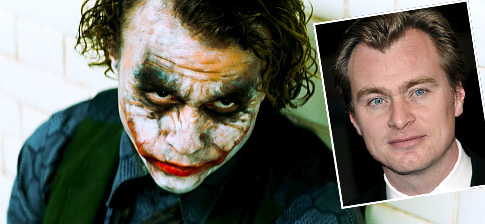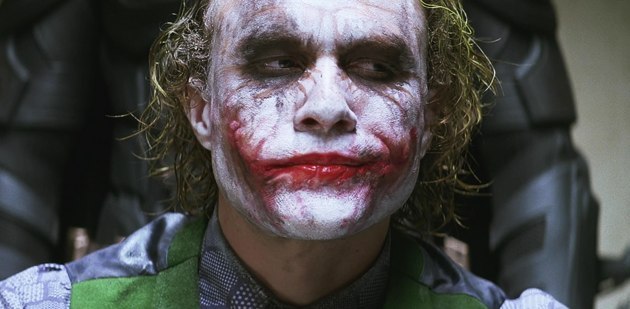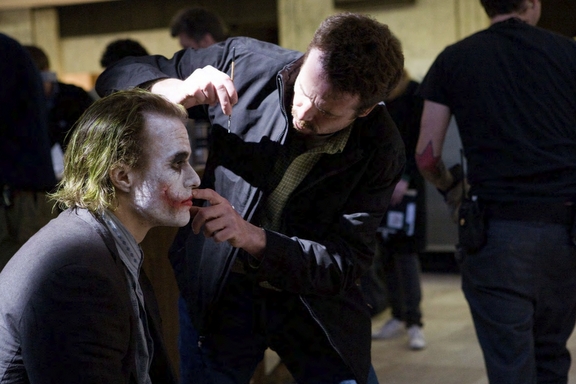What if Ledger had played Batman instead? The director of the Batman trilogy reflects on Ledger’s performance and his seven years with the character.

It’s hard to imagine anyone other than Heath Ledger as the Joker in director Christopher Nolan’s The Dark Knight film. Many fans of the franchise feel that the actor truly defined the Joker for film in a way unlike anyone before, which is why it is so interesting that initially, when Nolan first met with Ledger prior to the production of his first film in the franchise (Batman Begins), Ledger was against the idea of acting in a “comic book movie.”
Nolan had met with Ledger early on when he was putting together “Batman Begins” because he was meeting with most young actors in Hollywood at the time. And Ledger politely explained to the director why he would never be involved in a comic book film.
It was only after the release of Nolan’s first venture into the Batman mythos that Ledger realized Nolan’s vision for the character and the film, and for the comic book movie genre. Because regardless of whether you enjoyed Nolan’s Batman trilogy, flaws and all, his way of making the genre “relatable” completely redefined comic book movies. At last, superheroes could be ground in a sort of realism, or as Nolan calls it, “relatability.”
The term “realism” is often confusing and used sort of arbitrarily. I suppose “relatable” is the word I would use. I wanted a world that was realistically portrayed, in that even though outlandish events may be taking place, and this extraordinary figure may be walking around these streets, the streets would have the same weight and validity of the streets in any other action movie. So they’d be relatable in that way…You feel these things in a way because the world isn’t intensely artificial and created by computer graphics, which result in an anodyne, sterile quality that’s not as exciting…If I can believe in that world because I recognize it and can imagine myself walking down that street, then when this extraordinary figure of Batman comes swooping down in this theatrical costume and presenting this very theatrical aspect, that’s going to be more exciting to me.
And perhaps it is that “relatable” quality that has made his franchise such a tremendous success. Even Ledger’s Joker, as creepy as he was, was sort of grounded in reality. He was psychotic, twisted and very, scary and setting him in a “relatable” and “realistic” environment only served to enhance Ledger’s onscreen performance as this very dark, twisted character. The heralded director of the film franchise recently spoke at the Walter Reade Theater at Lincoln Center, New York City as part of the Film Society’s “An Evening with…” The event, which was hosted by Scott Foundas (Variety)focused specifically on Christopher Nolan’s experience as director of the Batman trilogy, and one of the most compelling points of the discussion that evening was Nolan’s reflection on Health Ledger’s performance in the second film. It seems that when Nolan first met Ledger, that it may have been for the role of Batman, which he politely declined. Yet Nolan went on to describe how meticulously Ledger studied the Joker’s character before he really “found” him.
Ledger spent months and months obsessing on and thinking about how he would play the character. Nolan sent him some materials, like Anthony Burgess’s novel “A Clockwork Orange” and some work by painter Francis Bacon, just “tangential” things that fed into his vision of the Joker…”Like a lot of artists, he would sneak up on something,” Nolan said. “So you couldn’t really sit and go, ‘Okay, you’re going to do the Joker. You’re going to show me what it’s going to be.’ You had to sort of say, ‘Let’s read this scene. Don’t act it, just read.’ And he’d sit with Christian and there would be a line or two where his voice was a little different, throw in a little bit of a laugh…The voice, though, worried the director at first, he said, because of its odd shift in pitch. “He had figured out this whole thing that was all based on the Alexander Technique, where if you hit a high note, you’re then able to hit sort of two octaves below afterwards,” Nolan said. “It’s a way of lowering your voice. So you had this character who you’d never quite know which way the pitch was going to go of his voice. Just as in his physical movements — you don’t know how he’s going to move; it’s always a surprise — the actual tone of his voice was always a surprise, too. Sometimes it would go incredibly low and threatening and other times it was light, in a way.”
The interview reveals that Ledger was in fact quite nervous about his portrayal of the Joker, and explains that the actor had to go to a very dark place for the role. In general, however, The interview is a great piece of commentary by the director of a franchise that truly changed the superhero movie genre, whether we want to admit it or not and it is great insight into how Ledger’s Joker came to be.
(original article written by Sara “Babs” Lima for ComicVine HERE)



I still miss you four years later, Heath. I owe you for getting me into Batman. Thanks, and rest well, clown prince. 🙂